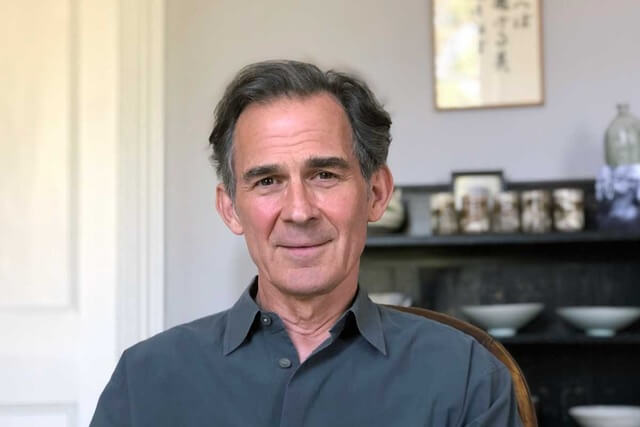Rupert Spira
It is common for people who encounter this teaching to fear dissolution of their identity. What do we fear disappearing with the recognition of our true nature? It’s true that what seems to define us as a person – our thoughts, feelings, ideas, name and form – is going to disappear.
If we were truly afraid of letting go of the individual characteristics of our particular body and mind, we would be afraid of falling asleep at night. But we do so happily; we even look forward to it! Without a moment’s thought we give up our body, our mind and our world as we fall asleep, and are left only as the peaceful self – pure awareness – that we essentially are.
We don’t miss our body and our mind when we are asleep. We’re perfectly happy there without them. Then, in the morning, we happily ‘get dressed’ in our body and mind again. First we put on our mind, then our body, and then the world.
All the time, underneath the body-mind-world that we assume, we are always this peaceful self that is inherently unattached to the body, mind and world. What we essentially are is no more attached to them than it is the clothes we’re wearing.
We don’t have to work hard to detach ourself from thoughts, sensations and perceptions. We just see that what we essentially are is already unattached to any particular object.
So why are we afraid of letting a collection of thoughts, sensations and perceptions disappear? What do we think we are going to lose? The reason we fear it is that we have invested our identity in a collection of objects – ideas, knowledge, history and the sensations that we know as the body – in something that comes and goes.
To say, ‘we have invested our identity’ means that our essential being of pure awareness, or the simple experience of being aware, has mixed itself up with a collection of thoughts and feelings to such an extent that it can no longer distinguish itself from them. By allowing our self to be entangled with an object or a collection of objects, we have allowed our true nature to be veiled.
Limiting ourself
Once we have consented to limit ourself in time and space and seem to have become, as a result, a temporary, finite entity that lives in and as the body, we are destined to experience in a way that is consistent with that consent, and are thus destined to suffer. The experience of suffering is like a red flag signalling us, ‘Stop! You have mistaken yourself for an object. You have consented to limit yourself to a mind and a body.’
From the point of view of awareness, which is the only real point of view, there is no veiling of itself. To say that we have allowed ourself to become entangled with the body and the mind is a concession to the apparently separate self that believes and feels itself to be temporary and finite. So the statement is made to that apparent one that we believe and feel ourself to be.
The implication of the phrase, ‘We have allowed ourself to become entangled’ is the possibility that we could not allow it, that we could choose not to become entangled. This then raises the question, ‘Do I, the separate self, have the free will to choose whether or not I become entangled with the body-mind?’
Excerpted from non-duality.rupertspira.com. The 61st birth anniversary of Rupert Spira falls on March 13







